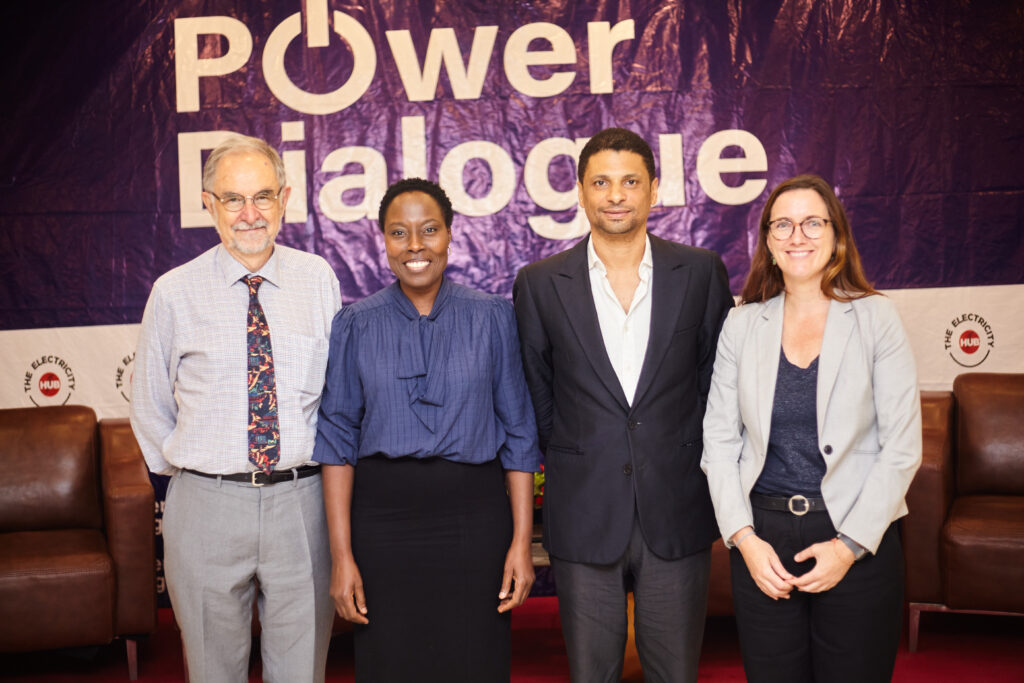By Chesa Chesa
Energy experts have again underscored the urgent need for a transition to clean energy, focusing on renewable resources, while noting that gas may not be the best fuel for energy transition.
They opined that it was crucial for Africa to identify the missing pieces in the quest for to optimise renewable energy, as African businesses decide which direction to take regarding their energy systems, as per LNG, decarbonisation, gas mitigation, etc.
The experts bared their minds at the 86th Power Dialogue organised in Abuja by the The Electricity Hub (TEH), a media organisation specialising in addressing electricity-related challenges.
This particular dialogue was dedicated to exploring the topic of ‘Energy Value Chain Investment for Transition to Clean Energy’, during which it was agreed that committing to national grids unlocks numerous benefits, including lower electricity costs and the potential to solve most electricity access problems.
The panel of discussants featured a group of accomplished experts from the energy sector, among who were Maria Yetano, a Senior Researcher affiliated with the Wuppertal Institute for Climate, Environment, and Energy; Peter Robinson, who serves as the Director for the Africa Region at Economic Consulting Associates; and Charles Majomi, a Partner specialising in Gas and Energy Transition at The Nextier Group.

(L-R): Peter Robinson, Stella Odiase, Charles Majomi, Maria Yetano at the Power Dialogue organised by the The Electricity Hub in Abuja, last weekend.
Stella Odiase, Cross-Cutting and Climate Change Advisor with the United Kingdom Nigeria Infrastructure Advisory Facility guided the discussions as the moderator of the event that underscored the Electricity Hub’s commitment to facilitating meaningful discussions within the ever-evolving energy landscape.
Majomi explained the foundation of the gas industry and why gas may not be the best fuel for energy transition. He traced the history of gas development in Nigeria and highlighted the challenges facing the gas industry.
He noted that much work must be done to address these issues, even as he pointed out that government support is essential to the gas industry’s success, although nothing has been done to address this.
Yetano highlighted what Africans should be doing with their renewable resources, explaining how Africa has had an enormous economic impact in the last couple of years, and seeing immense challenge for every market, including the renewable energy sector.
She stressed that investing in renewables is not a magical solution, especially when there has been little investment in non-renewable energy sources.
Yetano stated the imperative of keeping the long-term goal in mind, which is to merge economic development goals with the climate goals that the world is facing collectively.
The also shared valuable strategies for decarbonising and achieving a cleaner energy sector, pointing out that one of the problems with the energy transition plan is that it is just a plan, whereas implementation is much more complex.
“The energy transition involves not just electricity; it is a complicated sector that requires careful consideration and planning”, she declared
On his part, Robinson explained that there are “tremendous benefits in the electricity sector from having an integrated national grid”, even as he highlighted the benefits of an integrated national grid.
Speaking about the diversity of customers, he explained that “if you have an integrated grid, you will likely be climate resilient”.
Robinson stated that gas investments are viable and it is the most critical energy resource, yet the rich countries have let developing countries down.
In conclusion, the discussions emphasised the urgent need for a transition to clean energy, focusing on renewable resources and the challenges associated with gas projects.
The experts highlighted the importance of integrating national grids, emphasising their potential to enhance climate resilience and provide diverse benefits in the electricity sector.
Despite challenges, the dialogue showcased a collective commitment to addressing Africa’s energy needs and meaningful change within the continent’s energy systems.



